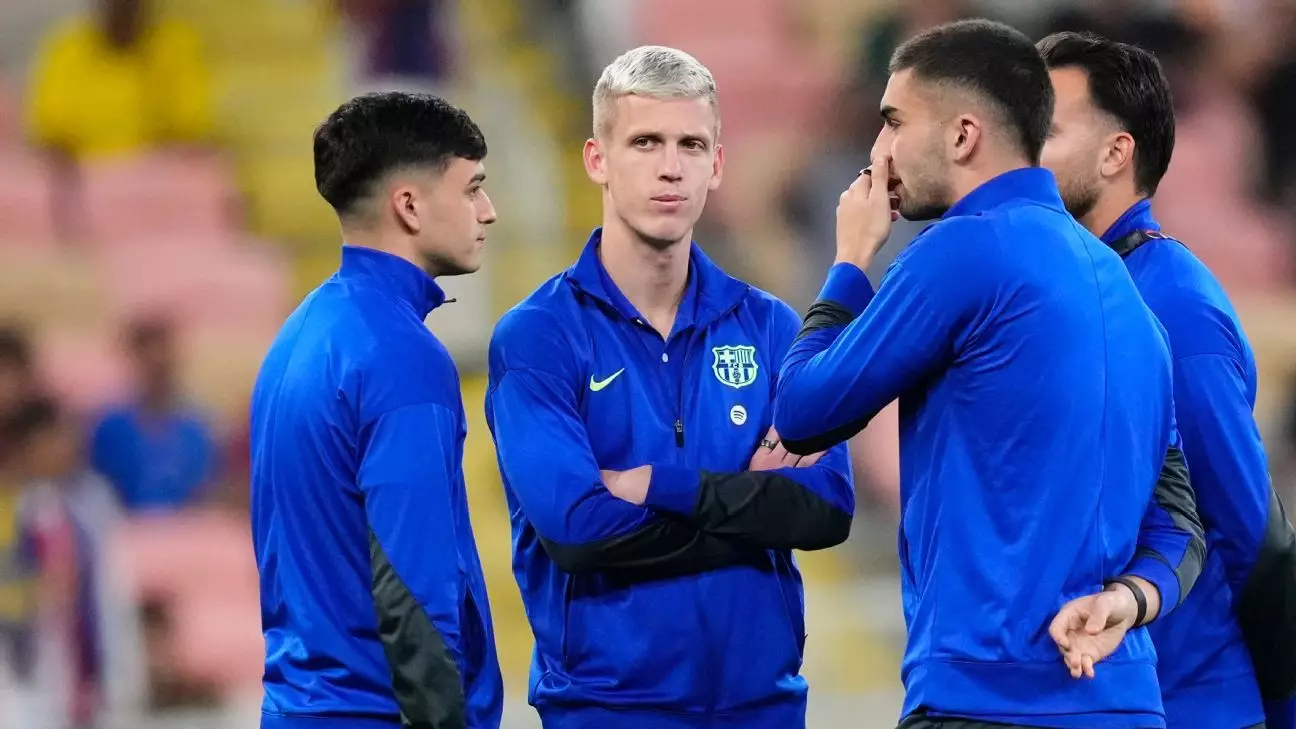The Spanish football landscape has always been characterized by intense rivalries and passionate fans. However, the recent controversy surrounding FC Barcelona, Dani Olmo, and Pau Víctor has ignited fierce debates that go beyond the pitch. The crux of the issue revolves around Barcelona’s temporary registration of these players, which was granted by Spain’s Sports Council (CSD) despite apparent non-compliance with La Liga’s financial fair play regulations. This article takes a critical look at the implications of this decision and the reactions it has evoked from various stakeholders in Spanish football.
The Background: Financial Fair Play and Compliance Issues
Barcelona’s struggle with financial compliance is not a new story. The club’s financial woes have been well-documented, leading to denials of registration for Olmo and Víctor by both La Liga and the Royal Spanish Football Federation (RFEF). Missing a critical compliance deadline set for December 31 raised eyebrows and questions about Barcelona’s financial management. By appealing to the CSD and securing temporary registrations, Barcelona illustrated a potential loophole in the regulatory framework governing Spanish football.
This decision sparked immediate backlash from rival clubs, notably Athletic Club, which questions the integrity of the ruling bodies. Athletic’s president, Jon Uriarte, labeled the situation as “grotesque,” suggesting that such provisional measures undermine the effort required by clubs to maintain financial viability and competitive integrity. The tension reveals a broader issue: the disparity in enforcement of rules and the perception that some clubs may benefit from preferential treatment.
Athletic Club’s public response to this controversy is notable for its vocal discontent. Uriarte’s scathing remarks point to a systemic issue in how football regulations are applied, casting doubt on the fairness of the system. The criticism extends to the scheduling of matches in Saudi Arabia, raising concerns about the disconnect between clubs’ obligations to their fans and the decisions made by governing entities. The juxtaposition of striving for growth while simultaneously navigating bureaucratic inconsistencies poses a dilemma for many clubs.
Athletic player Iñaki Williams added to the conversation by expressing concern about the long-term implications for the image of Spanish football. His remarks underscore the frustration felt by players and fans alike, who sense a growing divide within the sport. There is a palpable fear that the perception of favoritism and inconsistency could diminish the overall credibility of La Liga.
In the wake of criticism, Barcelona’s sporting director, Deco, defended the club’s actions by asserting that every club has its challenges. He maintained that the club is operating within the parameters set by the governing authorities and emphasized the legitimacy of the CSD’s decision. Yet, this defense raises further questions: Can a club that has struggled financially justify the acquisition of new players under the current regulations?
While Deco’s remarks may resonate with some, they also brush aside the valid concerns from rival clubs, suggesting a lack of accountability within the league. The situation exemplifies the balancing act that clubs must perform between competitive ambition and fiscal responsibility, often walking a tightrope that could threaten their stability.
The Broader Implications for Spanish Football
The ramifications of this controversy extend far beyond Barcelona and Athletic Club. La Liga president Javier Tebas, who expressed his surprise at the CSD’s ruling, hinted at a broader issue of accountability within the football governing bodies. His comments regarding the silence from Real Madrid TV suggest a division within Spanish football’s leadership, pointing to a need for greater dialogue and transparency.
As Olmo and Víctor prepare to play in the Spanish Supercopa final, the question remains: What lasting effects will this situation have on the credibility and unity of Spanish football? The disparate reactions from clubs, players, and officials illuminate the challenges faced in an environment where financial pressures and regulatory frameworks often clash.
The episode involving FC Barcelona’s temporary player registrations serves as a critical juncture for Spanish football. Stakeholders must address the underlying issues surrounding fairness and compliance, fostering an environment where dedication to the sport is matched by ethical and transparent governance. For the good of Spanish football, the time for introspection and reform is now. Amid the controversies and challenges, the collective goal should be to uphold the integrity of the sport and ensure that all clubs are held to the same standard.

Leave a Reply